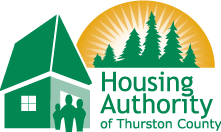Posts by Cody Taylor
Understanding NSPIRE Inspections: Guardrails
Under HUD’s NSPIRE standards, guardrails are a critical safety feature intended to prevent falls from elevated walking surfaces. They are often confused with handrails, but they serve different purposes and are evaluated under separate standards. This article explains when guardrails are required and what inspectors look for during an NSPIRE inspection. Guardrails vs. Handrails A…
Read MoreUnderstanding NSPIRE Inspections: Erosion
Erosion is a common concern for property managers, but under the new INSPIRE inspection protocol, how it’s evaluated has changed dramatically. Here’s exactly what counts as erosion, what doesn’t, and how property managers can prioritize their maintenance efforts. What Counts as Erosion Under INSPIRE, the only form of erosion that is considered a deficiency is…
Read MoreUnderstanding NSPIRE Inspections: Overgrown Vegetation
When it comes to property inspections under INSPIRE, many landlords and property managers wonder how overgrown vegetation is handled. Key Takeaways Practical Examples Conclusion For INSPIRE inspections, overgrown vegetation is generally not a problem unless it interferes with walkways or causes damage. By understanding these standards, property managers can prioritize maintenance efforts effectively and avoid…
Read MoreUnderstanding NSPIRE Inspections: Retaining Walls
Retaining walls are a common feature in housing developments, but under HUD’s NSPIRE inspection standards, not all retaining walls are treated the same. The key is knowing which walls are inspectable and what specific conditions can be cited. Which Walls Are Inspectable? Under NSPIRE, retaining walls are generally only inspected when they meet the minimum…
Read MoreUnderstanding NSPIRE Inspections: Flammable Materials
Proper storage of flammable materials is critical for resident safety and compliance with INSPIRE inspections. John, an INSPIRE training instructor, highlights the dangers and common violations that property managers need to address immediately. Why It Matters Incorrectly stored flammable materials are considered life-threatening deficiencies. These are among the highest point-value violations in an inspection, often…
Read MoreUnderstanding NSPIRE Inspections: Playgrounds
Playgrounds are a common feature in housing developments, but they are not a specific line item in INSPIRE inspections. That said, there are several safety concerns and recordable deficiencies that inspectors and property managers should monitor to ensure a safe environment for residents. Key Playground Safety Issues While the equipment itself isn’t directly inspected under…
Read MoreUnderstanding NSPIRE Inspection: Shower Heads and Diverters
Properly functioning shower heads and diverters are essential for maintaining safe, operable bathrooms in rental units. While there are relatively few defects to monitor, understanding them can help housing providers stay inspection-ready and ensure resident satisfaction. Common Defects When it comes to shower heads and diverters, there are three main inspection concerns: Ownership Considerations Best…
Read MoreUnderstanding NSPIRE Inspections: Resident-Owned Items
In NSPIRE inspections, understanding which items are considered inspectable is critical—especially when residents bring their own appliances or accessories into a unit. While ownership may belong to the resident, the responsibility for safety and functionality often falls on the housing provider once the item is installed or in use. Here’s a breakdown of common resident-owned…
Read MoreUnderstanding NSPIRE Inspection: Garage Doors
Garage doors are a common feature in many properties, but under NSPIRE standards, they are relatively simple to inspect. Unlike other building components, garage doors have only two possible recordable defects. Understanding these will help property managers maintain compliance and avoid inspection failures. Key Garage Door Inspection Points 1. Penetrating Holes 2. Hardware or Operational…
Read MoreUnderstanding NSPIRE Inspection: Roofing Shingles
Roofing shingles protect a building’s structure from water intrusion and weather damage. During NSPIRE inspections, shingles are evaluated for their condition, but the standards focus on safety and function rather than cosmetic appearance. Key Shingle Inspection Points 1. Missing or Damaged Shingles 2. Common Non-Defective Conditions 3. Recordable Defects Practical Tips for Property Managers Even…
Read More